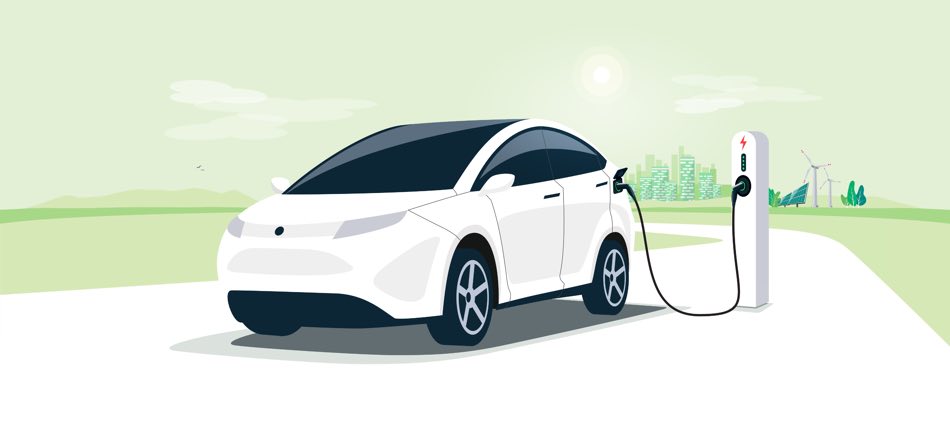Understanding the cost of charging their vehicle is crucial for electric car buyers. While most drivers are used to calculating their cost per gallon, the calculation for an electric car is a bit different. Knowing how many miles you can travel on a kilowatt of electricity is key. But fear not, as with gas cars, the miles per gallon equivalent applies to electrics. To get a better grasp on the basics of charging, we’ll break it down for you.
Battery Capacity
Understanding the battery capacity of an electric car is crucial for any potential buyer. It’s the electric equivalent of a gas tank size and directly affects the distance you can cover. The larger the battery capacity, the more kilowatts you can store, which typically leads to longer ranges. However, it’s important to note that electric car batteries are the most expensive component, which means that extended range comes at a premium. So, when considering an electric car, keep in mind that range can impact the cost.
Driving Range
When it comes to electric vehicles, one key consideration is the driving range on a fully charged battery. It’s comparable to the range you get on a single tank of gas in a traditional car, and it depends on the size of the battery and the vehicle’s efficiency. It’s worth noting that a larger battery doesn’t always mean a longer distance, as the added weight can offset the gains in distance. Each electric car model has its own efficiency, too. For example, the 2023 Lucid Air Grand Turing can travel up to 516 miles on a full charge of its 106-kilowatt battery, while the 2024 GMC Hummer EV SUV can go 359 miles on a 212-kilowatt battery. It’s clear that battery capacity is just one factor in determining driving range, as demonstrated by the Hummer EV’s lower range despite its larger battery.
Miles Per Kilowatt
Like you are used to the idea of miles per gallon of gas, I thought there should be an electric car equivalent. To help, I am introducing the concept of miles per kilowatts for electric cars. The idea is that your electric vehicle will travel a certain amount of miles, spending one kilowatt of electricity. Of course, each electric car model’s kilowatt per mile will differ as they will have their efficiency based on their configuration. Take, for example, a 2023 Lucid Air Grand Touring with a range of 516 on a 106-kilowatt battery. Dividing the range 516 by the battery capacity of 106 tells us that Lucid Air can travel 4.8 miles per kilowatt of electricity. In contrast, the 2024 GMC Hummer EV Pickup truck with a range of 313 miles and 212-kilowatt batter can travel 1.6 miles per kilowatt of electricity.
Price Per Kilowatt of Electricity
Electricity prices per kilowatt can be compared to gas prices per gallon. Familiarizing yourself with your state’s utility charges can help you determine the cost of charging your vehicle’s battery. According to national averages, a kilowatt of electricity from a commercial DC Fast charger costs around 25 cents while residential electricity costs around 14 cents. This means that charging a 100-kilowatt battery could cost $25 at a commercial DC Fast charger and $14 if charged at home. It’s important to note that electricity pricing varies depending on the state and time of purchase, with late-night purchases being cheaper. Additionally, some utilities offer time-of-use programs with lower rates during certain times. If you own solar panels, generating your own electricity may be the most cost-effective option.
Weather Impacts on Driving Range
Electric vehicles may experience a decline in driving range due to extreme temperatures. Snow and temperatures of 95 degrees Fahrenheit or higher can negatively impact the number of miles an electric car can travel on a single charge. This reduction varies depending on factors such as weight, temperature, and the specific make and model of the electric vehicle. AAA reports that some drivers have experienced up to a 40% decrease in driving range. However, it’s important to note that each electric vehicle model may experience a different level of range decrease.
Most of your Charging Happens Overnight at Home
Most of your driving will typically take place around 50 miles a day. Since most electric batteries are now between 200 to 516 miles and on a single charge, people charge at home overnight. Charging at home saves you money and time as all your driving is seamless, with no stops at a gas station or charging bay to refuel. However, some upfront costs are associated with setting up a home electric car charger. First, you will need to purchase a charging station that is compatible with your car. It would help to get a good electric car charger for about $500 to $1,000 for the hardware. You will also need an electrician to set up the home charger for around $400 to $1,200. Check with your electric utility provider, as they may offer incentives or rebates to set up an electric car charger.
Using a Commercial Electric Vehicle Charger Costs More
Most of your charging for your electric car will occur at home. However, a commercial charging station will be an option if you take a long trip or forget to charge overnight at home. Commercial charging stations will charge you more than your home rates, but the charging station could charge your electric car much faster. While the commercial rates can be almost twice the cost of charging at home, electricity will be cheaper than gas.
Electric Driver Is Your Resource for Charging Costs
After reading this, you should have a clear idea of the expenses involved in charging an electric vehicle. For further information, you can visit our site’s vehicle model pages, where we have gathered comprehensive data on electric charging and other related aspects specific to your car model and location.
